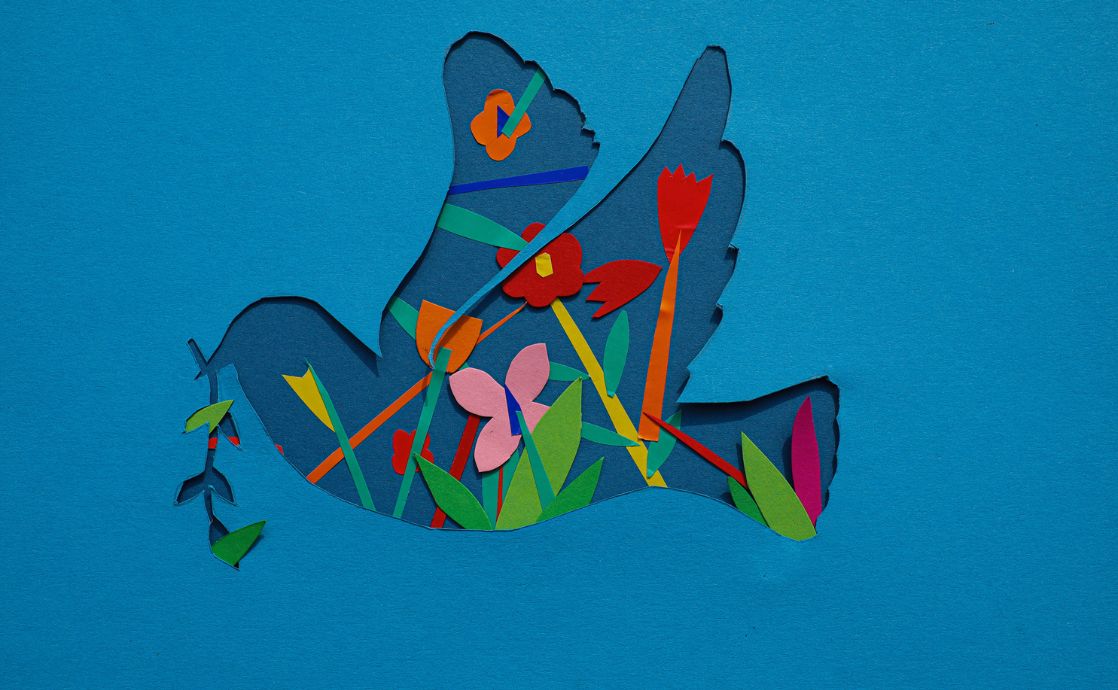The concept of atonement transcends mere forgiveness, serving as a transformative mechanism that can catalyze profound shifts within individuals and societies alike. Rooted in the Bahá’í teachings, atonement offers a lens through which to comprehend our interconnectedness and the collective responsibility we bear in fostering a peaceful world. This article delves into the intricate layers of atonement, exploring its implications for personal growth, community harmony, and global peace.
Understanding Atonement: A Multi-faceted Concept
Atonement fundamentally embodies the notion of reconciliation, not just between individuals but also within the fabric of communities and nations. It invites an introspective examination of human actions and their consequent impacts on others. The Bahá’í teachings elucidate that true atonement transcends superficial apologies; it necessitates a genuine commitment to rectify wrongs and foster healing. Such a commitment can precipitate a transformative encounter with the self, the community, and ultimately, the world.
The Transformational Power of Atonement
In the realm of personal development, atonement acts as a powerful catalyst for inner change. Recognizing one’s shortcomings, coupled with the earnest desire to amend them, cultivates traits such as humility, empathy, and resilience. This internal metamorphosis fosters a profound understanding of human interdependence, prompting individuals to elevate their moral and ethical standards. Consequently, this heightened awareness can inspire proactive efforts to contribute positively to societal well-being.
Communities thrive on the principles of mutual understanding and collective responsibility. When individuals within a community undertake the journey of atoning for past grievances, they inevitably enhance the communal bond. The act of atonement serves as a societal glue that mends rifts and fosters unity. Engaging in dialogue, expressing remorse, and taking actionable steps toward healing transforms not only personal relationships but also the larger social fabric. Such movements can ripple throughout communities, inciting a renaissance of collaboration and kindness.
Collective Atonement and Global Peace
On a macro scale, collective atonement emerges as a crucial precursor to global peace. Historical injustices, be they rooted in colonialism, racism, or gender discrimination, require an acknowledgment and a concerted effort toward reparative action. The Bahá’í teachings assert that peace cannot merely be the absence of conflict; it must be established through conscious efforts to address past wrongs. This involves a commitment from individuals and nations to engage in atonement that reflects a genuine understanding of their shared humanity.
Imagining a world where nations collectively embrace the principle of atonement takes us beyond conventional paradigms of reconciliation. It requires a shift in perspective that prioritizes understanding over vengeance, compassion over apathy. In practice, this could manifest through restorative justice initiatives, truth and reconciliation commissions, and international dialogues aimed at healing historical wounds. Such frameworks encourage nations to not only recognize their collective history but also to collaboratively envision a future grounded in justice and equity.
Shifting Perspectives: Beyond Forgiveness
At the heart of atonement is a fundamental shift in perspective—moving beyond the simplistic notion of forgiveness toward a more profound understanding of accountability and transformation. While forgiveness is essential, it is often an individual act centered on personal grievances. Atonement, conversely, requires us to consider the broader implications of our actions and the responsibilities we carry toward one another. This holistic approach fosters a culture of accountability that encourages individuals and groups to seek redemption actively.
Practically, this shift mandates engagement with our own biases and privilege, urging us to acknowledge the impact of systemic injustices. Understanding that atonement is a journey rather than a destination reinforces the idea that transformation takes time and effort. As we confront our collective shortcomings, we unlock the potential for unprecedented progress and healing on a global scale.
Curiosity and the Pursuit of Knowledge
Embracing atonement necessitates cultivating an inquisitive mindset. As individuals and communities strive to understand the dynamics of their relationships, they must be propelled by a desire to learn. This intellectual curiosity ignites a passion for discovery—about oneself, one’s community, and the larger world. It encourages questioning the status quo and seeking innovative solutions to age-old problems. The Bahá’í teachings inspire this quest for understanding and knowledge as essential instruments in the practice of atonement.
Such curiosity also extends to the recognition of diverse perspectives. Engaging with differing worldviews enriches our understanding and fosters empathy, facilitating a more profound and meaningful conversation about reconciliation and healing. This dimension of atonement underscores its potential to transform not only individual lives but entire societies, infusing them with a spirit of inquiry, compassion, and action.
Conclusion: A Paradigm Shift Towards Peace
Atonement, as illuminated by Bahá’í teachings, transcends forgiveness and beckons individuals and societies toward a paradigm shift. By embracing atonement, we can inspire a collective awakening to the intricacies of our shared existence, the responsibilities we bear, and the interconnected pathways toward peace. It beckons humanity to move beyond a retribution-based framework, advocating instead for a culture rooted in empathy, understanding, and transformative action. Through this lens, we can envision a world where atonement becomes a powerful force for good, shaping not only individual lives but the course of human history itself.
